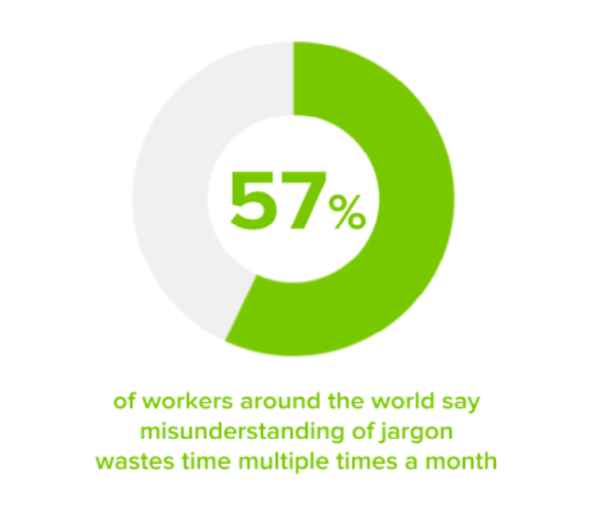Your Gen Z and millennial coworkers hate office jargon, so maybe avoid these 9 phrases
If you’re out of pocket, circling back, getting your ducks in a row, or worried about too many cooks in the kitchen, it might be time to stop drinking the Kool-Aid.
Or to put it another way, please consider reducing your use of professional jargon around the office, as such language tends to annoy your colleagues and may have a negative impact on workplace inclusivity.
Those are some of the key takeaways from a new survey released by LinkedIn and Duolingo, in which 8,000 workers across eight countries were asked their thoughts about professional jargon and how it manifests in the workplace. In countries across the world, a majority of employees agreed that jargon is overused, even as many respondents admitted that they themselves often don’t realize they’re using it.
At the same time, jargon is not harmless: It can lead to confusion, lost productivity, and even a sense of alienation, the survey suggests, particularly among employees for whom English is not their first language. That’s because many of the most commonly used jargony phrases around the world are derived from English buzzwords. Think “EOD,” which is common in India, or “ASAP,” which is used in Japan.

In the United States, about half of workers surveyed said they’d like to hear jargon used less often or not at all, but that aversion to buzzwords was stronger among younger respondents. Millennials were apparently the most annoyed by jargon, with 65% saying they’d like to see it stopped or reduced. Gen Z workers also fell squarely in the anti-jargon camp, with 60% saying so.
If jargon survives, it might be largely thanks to older workers, as only 50% of Gen Xers and 23% of baby boomers indicated that they would like to see it reduced or eliminated.
Also worth noting: The United States ranked third among the countries with the strongest anti-jargon sentiment, behind Vietnam and India, where 58% and 70% wanted to do away with the buzzwords respectively.
So which phrases should you avoid? In the United States, the following five are the most common, so perhaps it wouldn’t hurt to start there:
Meanwhile, these five were said to be the most confusing:
The survey was conducted in May among professionals 18-76 in Australia, India, Columbia, Brazil, Vietnam, Japan, the U.K., and the United States.
By the way, it’s interesting to note that “ducks in a row” had the distinction of being among the most used and the most confusing phrases. What exactly does that mean, anyway? Google it and let’s circle back.
(28)



